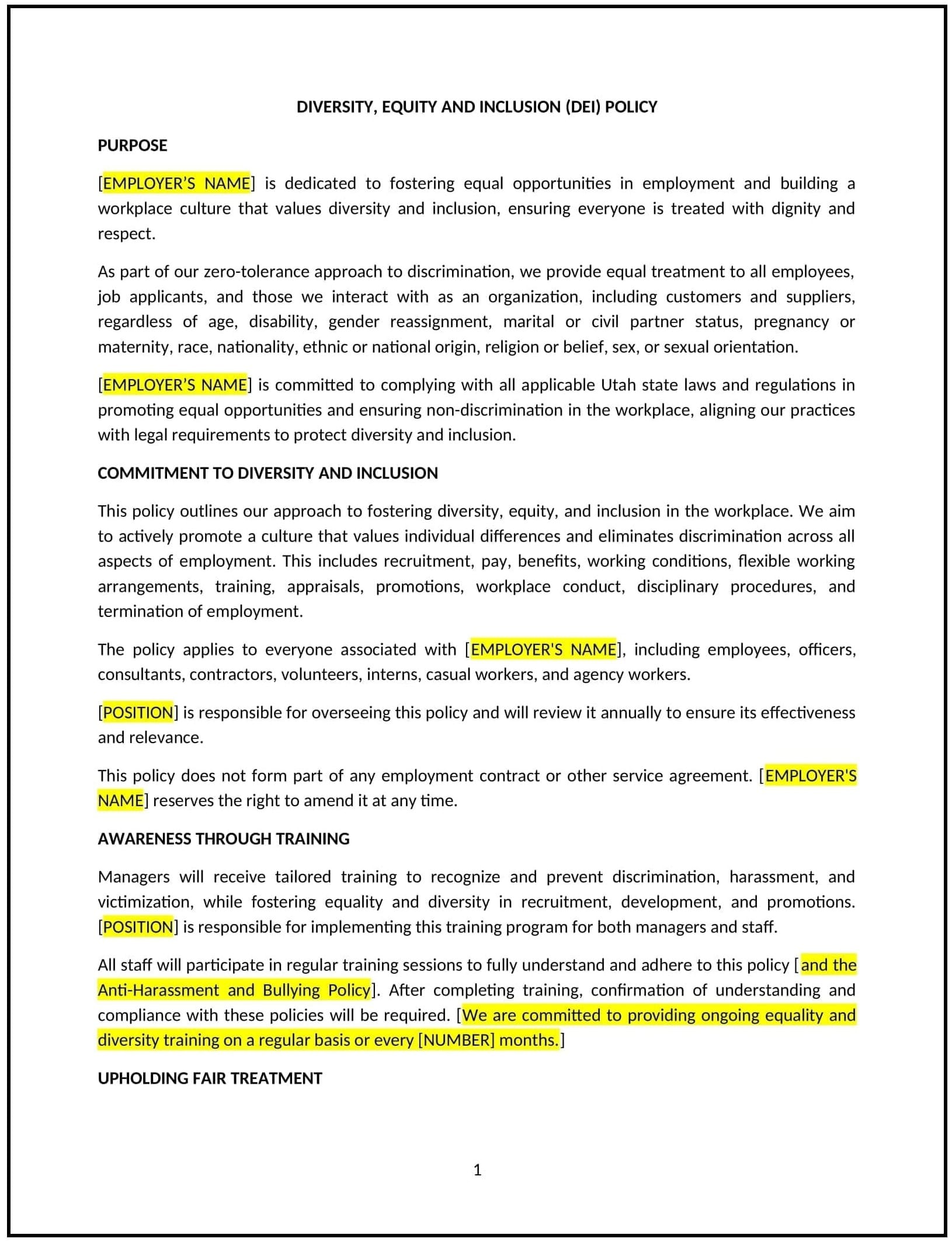Diversity, equity, and inclusion (DEI) policy (Utah): Free template
Got contracts to review? While you're here for policies, let Cobrief make contract review effortless—start your free review now.

Customize this template for free
Diversity, equity, and inclusion (DEI) policy (Utah)
This diversity, equity, and inclusion (DEI) policy is designed to help Utah businesses foster a workplace culture that values and respects diversity, promotes equity, and ensures inclusivity for all employees. It outlines the business’s commitment to DEI principles and provides guidelines for implementing and maintaining these values.
By adopting this policy, businesses can create a more inclusive environment, attract and retain diverse talent, and align with general best practices for workplace diversity.
How to use this diversity, equity, and inclusion (DEI) policy (Utah)
- Define DEI principles: Explain the importance of diversity, equity, and inclusion in the workplace.
- Establish goals: Set measurable objectives for promoting DEI, such as increasing representation or reducing bias.
- Provide training: Educate employees and managers on DEI topics, including unconscious bias, cultural competence, and inclusive leadership.
- Promote inclusivity: Encourage practices that support inclusivity, such as diverse hiring panels, mentorship programs, and employee resource groups.
- Monitor progress: Regularly assess DEI initiatives and track progress toward achieving goals.
- Address issues: Provide procedures for reporting and addressing discrimination, harassment, or other DEI-related concerns.
- Review and update: Regularly assess the policy to ensure it aligns with evolving DEI best practices and business needs.
Benefits of using this diversity, equity, and inclusion (DEI) policy (Utah)
This policy offers several advantages for Utah businesses:
- Enhances workplace culture: Fosters a sense of belonging and respect among employees.
- Attracts and retains talent: Demonstrates a commitment to DEI, making the business more attractive to diverse candidates.
- Improves innovation: Encourages diverse perspectives, leading to more creative and effective solutions.
- Aligns with best practices: Provides a structured approach to promoting DEI in the workplace.
- Reduces legal risks: Helps businesses comply with anti-discrimination laws and reduce the risk of lawsuits.
Tips for using this diversity, equity, and inclusion (DEI) policy (Utah)
- Communicate the policy: Share the policy with employees and include it in the employee handbook.
- Provide training: Educate employees and managers on DEI principles and their importance.
- Monitor progress: Regularly review DEI initiatives and track progress toward achieving goals.
- Address issues promptly: Take corrective action if DEI-related concerns arise.
- Update regularly: Assess the policy annually to ensure it aligns with evolving DEI best practices and business needs.